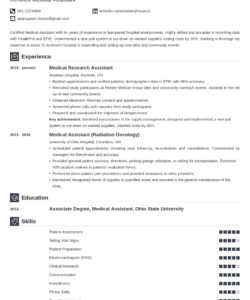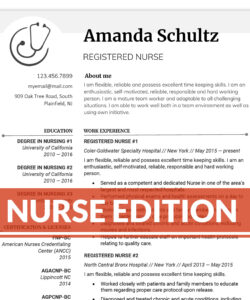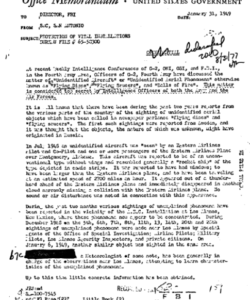When you’re writing a resume, it’s important to include your expected graduation date if you’re still in school. This information can help potential employers understand your timeline and availability. Here are some tips for how to write your expected graduation date on your resume.
1. Include Your Expected Graduation Date in the Education Section
The education section of your resume should include your expected graduation date. This information should be listed after the name of your degree and the name of your school. For example:
Bachelor of Science in Computer Science, XYZ University
Expected Graduation Date: May 2024
If you’re not sure of your exact graduation date, you can use a general time frame instead. For example:
Bachelor of Science in Computer Science, XYZ University
Expected Graduation: Spring 2024
It’s important to be as specific as possible when listing your expected graduation date. This information can help potential employers understand your availability and timeline.
2. Be Prepared to Discuss Your Graduation Date in an Interview
When you’re applying for jobs, potential employers may ask you about your expected graduation date in an interview. Be prepared to discuss this information and provide any additional details that may be relevant. For example, if you’re planning to take a semester off, you may want to explain why.
It’s also important to be honest about your expected graduation date. If you’re not sure when you’ll be graduating, it’s better to say so than to provide inaccurate information.
3. Consider Including Relevant Coursework on Your Resume
If you’re still in school, you may want to consider including relevant coursework on your resume. This can help demonstrate your skills and knowledge to potential employers. For example, if you’re applying for a job in computer science, you may want to list relevant courses you’ve taken, such as:
Introduction to Computer Science
Data Structures and Algorithms
Programming Languages and Compilers
Listing relevant coursework can help show potential employers that you have the skills and knowledge necessary for the job.
4. Highlight Relevant Experience on Your Resume
If you don’t have a lot of work experience, you may want to highlight relevant experience on your resume. This can include internships, volunteer work, or other experiences that demonstrate your skills and knowledge. For example, if you’re applying for a job in marketing, you may want to highlight a marketing internship you completed.
When highlighting relevant experience, be sure to focus on the skills and knowledge you gained. This can help demonstrate your qualifications to potential employers.
Conclusion
When you’re writing a resume, it’s important to include your expected graduation date if you’re still in school. This information can help potential employers understand your timeline and availability. Be sure to include your expected graduation date in the education section of your resume, and be prepared to discuss this information in an interview. You may also want to consider including relevant coursework or highlighting relevant experience on your resume.
FAQ
Q: Should I include my expected graduation date if I’m not sure when I’ll be graduating?
A: If you’re not sure of your exact graduation date, you can use a general time frame instead. For example, you could list your expected graduation as “Spring 2024.” It’s important to be as specific as possible when listing your expected graduation date.
Q: What if I’m planning to take a semester off?
A: If you’re planning to take a semester off, you may want to explain why in your resume or cover letter. This can help potential employers understand your timeline and availability.
Q: Should I include my GPA on my resume?
A: Whether or not you should include your GPA on your resume depends on your individual situation. If you have a high GPA and you’re applying for jobs in a field where academic achievement is important, you may want to include it. However, if your GPA is low or you’re applying for jobs in a field where academic achievement is less important, you may want to leave it off.


